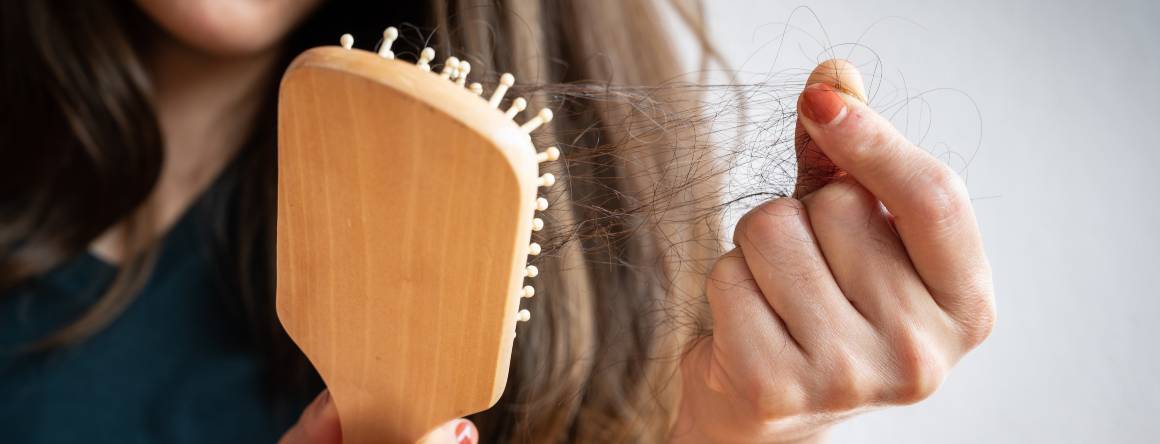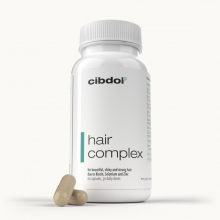What causes poor hair quality
Published:
Hair loss and thinning hair are frustrating problems that can really take a toll on your confidence. But did you know that the health of your scalp plays a major role in the quality and quantity of your hair? A healthy scalp provides the ideal environment for your hair to thrive. Read on to learn why scalp health is so important for robust hair growth, signs your scalp may be unhealthy, and actionable tips to improve scalp and hair health.
Contents:
- Why Scalp Health Matters
- Signs Your Scalp May Be Unhealthy
- Factors That Damage Scalp and Hair Health
- How to Improve Scalp and Hair Health
- The Takeaway
- What causes poor hair quality?
- What are some signs of weak hair?
- Can using the wrong hair care products damage my hair?
- How can I strengthen weak hair?
- Can a poor diet contribute to weak hair?
- What are some common causes of hair loss?
- Can sudden hair loss be a cause for concern?
- How can I promote hair growth?
- Does wet hair tend to be more fragile?
- Can age and hair aging affect the quality of my hair?

Why Scalp Health Matters
Your scalp is home to approximately 100,000 hair follicles. These follicles anchor your hair strands and promote new hair growth. Hair typically grows about half an inch per month. At any given time, about 90% of your hair is in the growth phase while 10% is in a resting phase before falling out.
When your scalp is healthy, your hair follicles are able to produce strong, healthy hair fibers. But if your scalp is dealing with issues like inflammation, sensitivity, excess oil, or dryness, these problems can disrupt the hair growth cycle. Unhealthy scalp conditions like dandruff, psoriasis, or seborrheic dermatitis can cause hair thinning and increased shedding.
So pay close attention to the health of your scalp. Keeping it balanced and free from problems will enable your hair to grow thick and robust.
Signs Your Scalp May Be Unhealthy
How can you tell if your scalp health is suboptimal? Here are some key signs to watch out for:
- Flaking, itching, redness, irritation
- Increased hair shedding or breakage
- Visible thinning, especially at the crown or hairline
- Dandruff or buildup on the scalp
- Scalp sensitivity or sore spots
- Excess oiliness or dryness
If you notice any of these issues with your scalp, it’s time to switch up your hair care routine to get your scalp back into shape.
Factors That Damage Scalp and Hair Health
Many factors can contribute to an unhealthy scalp environment and hair problems like thinning and loss. Being aware of these damaging factors can help you minimize or avoid them.
Hair products: Shampoos, conditioners, hairsprays, and other products contain chemicals that can irritate the scalp for some people and lead to follicle damage over time.
Heat styling: Frequent use of hot styling tools like blowdryers, straighteners, and curling irons can cause hair dryness and breakage.
Tight hairstyles: Hairstyles like tight ponytails or braids put excess tension on hair follicles, which can lead to traction alopecia and permanent loss.
Stress: High stress levels elevate hormones like cortisol, which can interrupt the hair growth cycle.
Nutrient deficiencies: Lacking key nutrients for hair like protein, iron, zinc, or B vitamins can starve follicles.
Hormonal changes: Shifts in androgens and estrogen can make hair more prone to thinning and shedding for women.
Scalp infections: Bacterial or fungal infections can inflame follicles and cause visible hair loss.
Autoimmune disease: Conditions like alopecia areata cause the immune system to mistakenly attack hair follicles.
How to Improve Scalp and Hair Health
Ready to get your scalp in tip-top shape and promote healthier hair growth? Incorporate these tips into your hair care routine:
- Massage the scalp: This boosts circulation and stimulates hair follicles. Do it daily or several times per week.
- Avoid tight hairstyles: Give hair a break from ponys and braids which put excess tension on strands.
- Use sulfate-free shampoos: Sulfates strip oils, so opt for gentle cleansers 1-2 times per week.
- Switch to a boar bristle brush: This distributes oils from root to tip without damage.
- Apply hair masks: Treat hair to weekly masks with nourishing oils and butters.
- Take biotin supplements: Biotin supports keratin infrastructure to reduce breakage.
- Eat a balanced diet: Make sure to get enough protein, iron, zinc and vitamin A for hair health.
- Reduce stress: Mindfulness, yoga, and other activities can balance stress hormones.
- Limit heat styling: Allow hair to air dry when possible and use protective sprays.
- Get scalp treatments: In-salon laser therapy or PRP can rejuvenate follicles.
The Takeaway
If you’re struggling with lackluster locks, don’t just look at the hair strand. Your scalp health lays the foundation for optimal hair growth and quality. Assess your scalp, avoid damage, and proactively nurture it. With a healthy scalp environment, you can achieve the fuller, healthier hair of your dreams.
Some key points to remember:
- Scalp inflammation disrupts the hair growth cycle
- Notice signs like shedding, thinning and flakes
- Avoid damage from styles, heat, and chemicals
- Nourish with massage and hair masks
- Choose gentle hair products
- Reduce stress and eat hair-healthy nutrients
- Get professional scalp treatments if needed
By regularly caring for your scalp, you can maintain a habitat where your hair thrives and reaches its fullest potential.
What causes poor hair quality?
Poor hair quality can be caused by various factors such as damage to the hair shaft, scalp issues, dryness, brittleness, and even a poor diet.
What are some signs of weak hair?
Signs of weak hair can include excessive shedding, hair breakage, split ends, lack of shine, and difficulty in growing the hair.
Can using the wrong hair care products damage my hair?
Yes, using the wrong hair care products can lead to damage hair. It is essential to choose products that are suitable for your hair type and address your specific hair concerns.
How can I strengthen weak hair?
To strengthen weak hair, you can try using hair care products that contain ingredients like keratin, biotin, and protein. Additionally, adopting a healthy hair care routine and avoiding heat styling can help prevent further damage.
Can a poor diet contribute to weak hair?
Yes, a poor diet lacking essential nutrients like protein, vitamins, and minerals can negatively impact the health of your hair, leading to weak and brittle hair.
What are some common causes of hair loss?
Hair loss can be caused by a variety of factors, including genetics (pattern hair loss), hormonal changes, certain medical conditions, physical or emotional stress, and certain medications or treatments.
Can sudden hair loss be a cause for concern?
Sudden hair loss may be a cause for concern and could indicate an underlying issue. If you experience sudden or excessive hair loss, it is advisable to consult a healthcare professional to determine the cause and appropriate treatment.
How can I promote hair growth?
You can promote hair growth by maintaining a healthy diet, using hair care products that contain ingredients like biotin and vitamins, practicing good scalp hygiene, and avoiding damaging hair practices.
Does wet hair tend to be more fragile?
Wet hair is more prone to breakage and damage compared to dry hair. It is best to handle wet hair gently and avoid brushing or combing it vigorously.
Can age and hair aging affect the quality of my hair?
Yes, as we age, our hair tends to become thinner, drier, and more prone to damage. Taking steps to care for your hair and scalp becomes even more important as you age.










